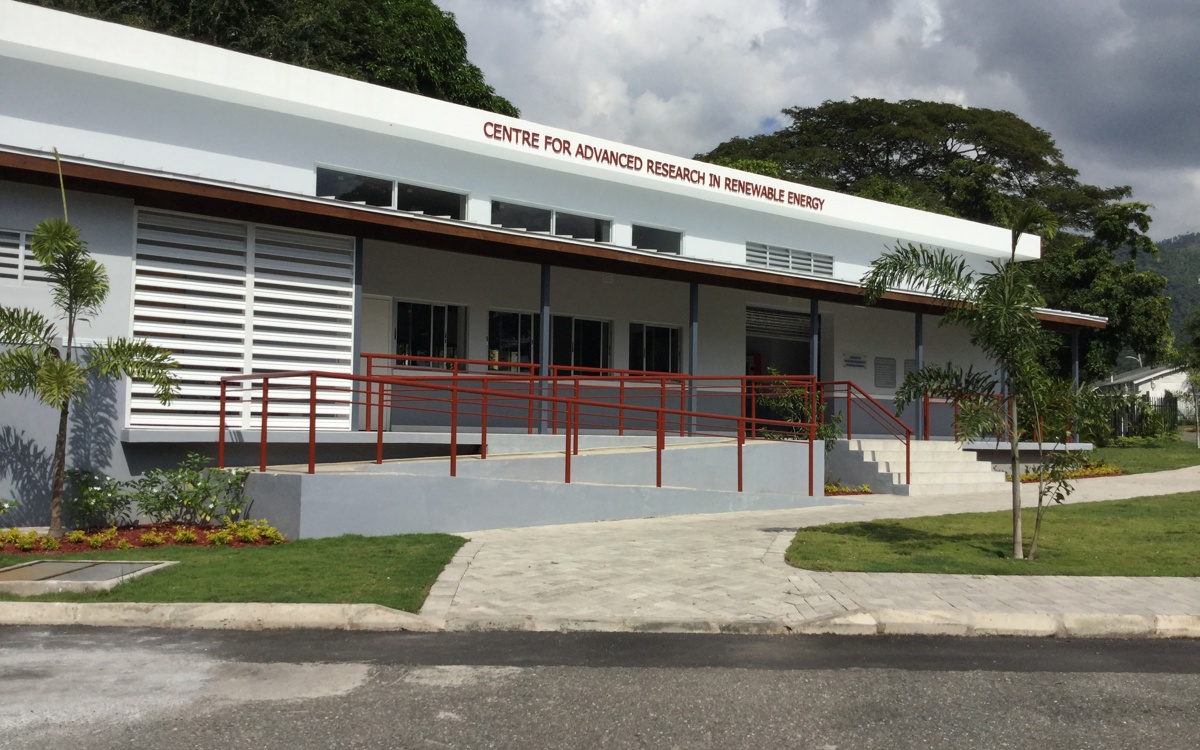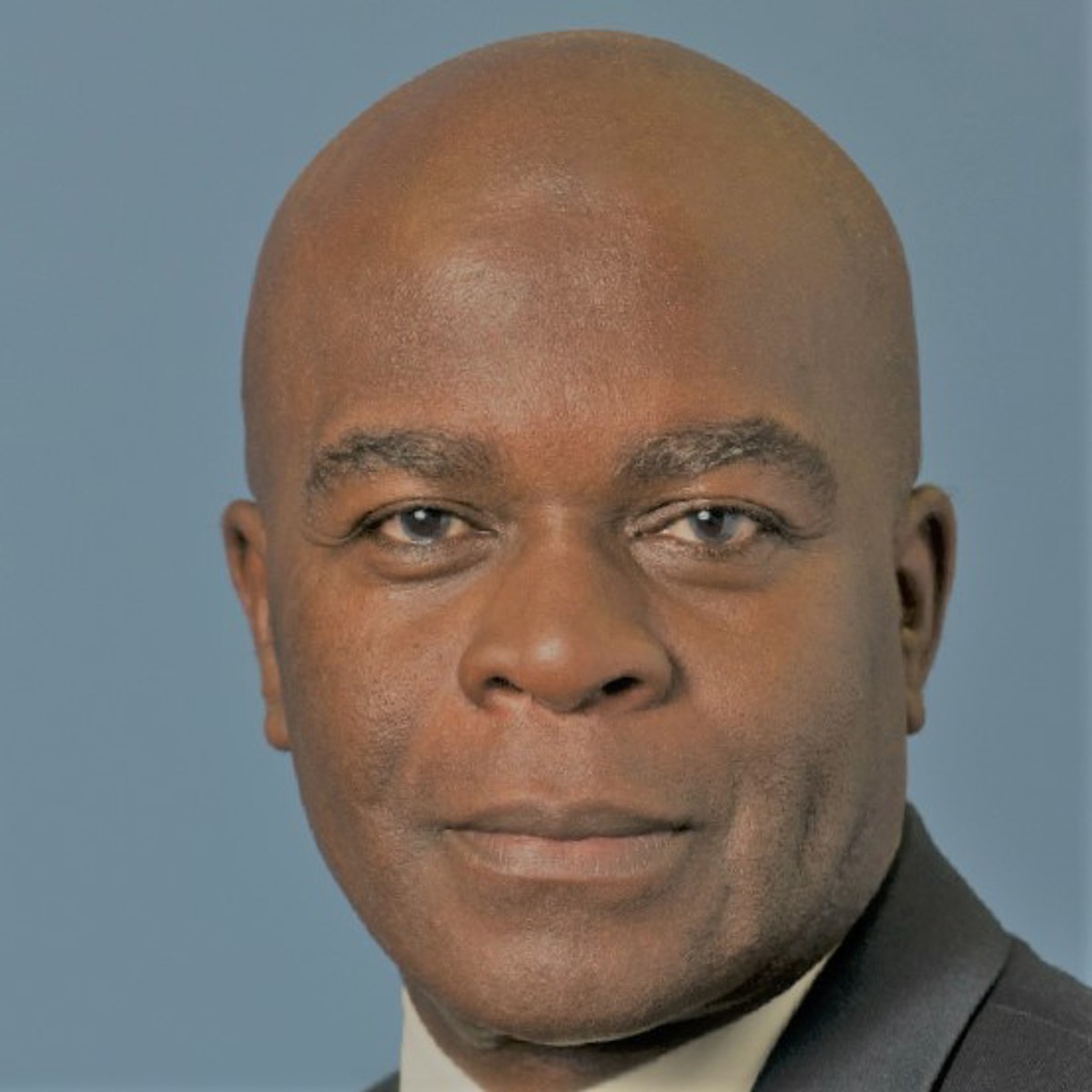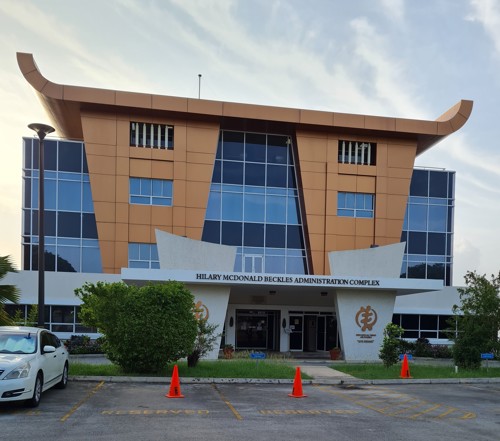The role of higher education institutions in the battle for adapting to a changing climate.


Jeremy Collymore
Disaster Risk Management Specialist and Honorary Research Fellow
Jeremy Collymore is a Disaster Risk Management Specialist and Honorary Research Fellow, Institute of Sustainable Development, University of the West Indies (UWI) and Co-Convenor of the ACU’s Commonwealth Climate Resilience Network. In this blog, Jeremy discusses the important role of universities in climate action, and how The UWI and other Caribbean higher education institutions are facing up to the climate resilience challenge.
In the period of 1950-2014, the total cost of damages to the Caribbean region from 148 natural disasters is estimated at 52 billion USD. Between the years 2000-2017, 13 of the Caribbean Development Bank’s Borrowing Member Countries experienced high rates of loss and damage from natural hazard events estimated at 27 billion USD, more than 50% of losses in the 75-year period. These figures attest to the hazardousness of the Caribbean to extreme climate and other events and the associated disruption to its development.
For the Caribbean, climate change is no longer a future threat but a stark current reality. The limit of a 1.5°C rise in global temperatures for Small Island Developing States (SIDs) and Middle-Income Countries (MIDS) is about our survival. Speaking after the impacts of hurricanes Irma and Maria in 2017, UN Undersecretary General Glasser stated the region faces an existential threat. Earlier this year, the 2021 IPCC Report suggested that a 1.5°C rise is likely by 2030, signalling the urgent need for investment in adaptation strategies and the advancement of climate resilience in the Caribbean.
This calls for new ways of thinking and working, as well as building on existing science and technology to innovate the new tools and capacity needed to transform into climate resilient states.
There is a clear role for higher education institutions (HEI’s) in the battle for adapting to a changing climate. They are ideal arenas for experimenting with and modelling solutions, while also improving knowledge, design and technology for future applications. In Small Island Developing States, like those in the Caribbean and the South Pacific, HEIs absorb a significant percentage of national budgets. Simultaneously, they are usually the largest single reservoir of researchers and thought leadership that can be centered on the challenges to the community and economy posed by climate change.
While definitions of resilience vary in emphasis, they largely align on the need for multi-level, multi-sectoral and long-term approaches that are sensitive to risk. The aim is to build the capacity to absorb and adapt in the face of shocks and stresses and ultimately achieve transformational change that may end the cycle of increasing humanitarian needs. Resilience appears to offer a way to bring different disciplines and perspectives under a single conceptual umbrella.
The UWI and other Caribbean HEIs are embracing climate resilience through an evolving 4-step process:
House-in-order actions
The championing of resilient development is emerging as an institutional commitment and is being reflected in campus management, curriculum, research, student and community engagement activities. Based on a UWI model, HEIs in the Caribbean, through the Association of Tertiary Institutions (ACTI), have assessed where they are in business continuity planning (BCP). The results suggest major gaps in this area, but there are also areas of strength:
The ACU’s Climate Change Resilience Network (CCRN) and The UWI are co-developing toolkits to support BCP processes and practices in HEIs.
Structured student engagement in climate action is encouraged and evident across The UWI’s campuses and its governance mechanisms.
Alternative and renewal systems are being introduced including a net zero energy model building, water recycling, and conservation systems are being expanded. As well as this, experiments in improved building performance for wind and earthquake hazards are intensifying.
New graduate and professional development programmes are also being introduced, the latest being the Graduate Certificate in Disaster Risk Management (DRM) and Disaster Resilience.
Inter- and trans-disciplinary learning and action
Caribbean HEIs recognise that the changing dynamics and complexity of the hazardousness of the Caribbean states require more investment in multi- and trans-disciplinary approaches to learning. The UWI is taking the lead in this area. The establishment of the Global Institute for Climate Smart and Resilient Development (GICSRD), seeks to facilitate teaching, learning, applied research and knowledge sharing with the real potential to limit global warming to 1.5° and preserve the lives and livelihoods of Caribbean people. It is intended to be an ecosystem built on research and world-class expertise designed to contribute to the pursuit of a Caribbean climate-resilient zone.
Partnerships as platforms for resilience
As players within a broader social system of diverse stakeholders, Caribbean HEIs recognise that partnerships are key to their efforts in championing resilient development. This is especially so given their limited financial resources. The UWI has a diverse suite of HEI, bilateral, multi-lateral, NGO and private sector partnerships. They allow for cross sector discussions to facilitate, link and leverage activities, where appropriate, to promote resilient development. For example, The UWI is using its global recognition in climate science to champion HEI collaboration around SDG 13 (Climate Action) within the framework of the International Association of Universities (IAU). Collaboration with the Caribbean Catastrophe Reinsurance Facility (SPC) is also increasing capacity development in understanding risks and the introduction of instruments to finance damage and disruptions.
Alignment of efforts across the higher education sector
The Education Sub-Committee of the Comprehensive Disaster Management Harmonization Council, where international development partners and national Disaster Risk Management (DRM) meet, allows for HEIs to address their practice and policy needs. Additionally, the ACTI is providing a space for engaging around a declaration on Resilient Caribbean Tertiary Institutions, and Universities Caribbean is facilitating wider discussion across this multi-lingual space. Furthermore, the ACU’s global network of universities is providing a vehicle to integrate these issues into the higher education sector through the regular meetings of Ministers of Education.

Facing up to the climate resilience challenge
Caribbean HEIs have had a long tradition in disaster risk management and resilience initiatives, though it has been largely ad hoc. Engaging in the activist agenda and championing the value of the resilient state will require a revisit of management culture, the processes of product design, student engagement and more options for earning degrees involving fieldwork and collaborative research in the private sector.
Nothing short of institutional engineering is required to sustain these embryonic initiatives. Urgent investment is needed to utilise the information available from hazard modelling and using it to frame evidence-based decision-making policy.
HEIs are essential contributors to the Caribbean’s resilience agenda and, through engaging in wider dialogue on disaster risk reduction, can help to save both lives and livelihoods. Given the short time frame in which the 1.5°C rise in global temperature may be realised (by 2030), our attention to adaptation must be accelerated and intensified. Whilst this could impact the nature of negotiations and outcomes of COP26, Caribbean HEIs must accelerate their support of the adaptation agenda.

More information
The ACU at COP26: Discover how the ACU and our members are supporting local, national and international climate action
Visit the ACU's COP26 hub, to discover all the ways you can get involved with COP26
With many Commonwealth countries on the frontline of climate change, the ACU’s Commonwealth Climate Resilience Network (CCRN) is working to build climate resilience within universities and their wider communities. Find out more and join the network here
